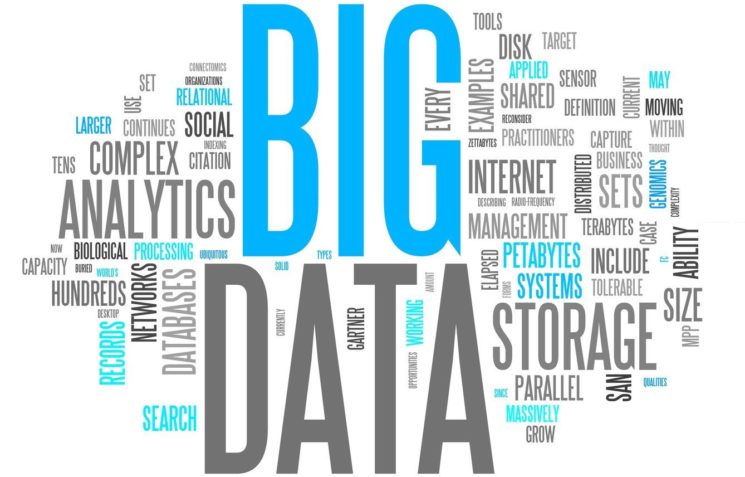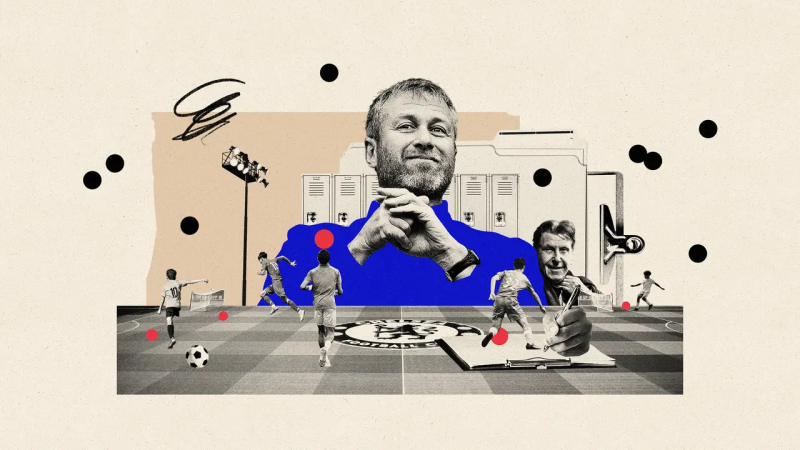Last month’s article revealed the average person creates a massive amount of personal data, and that companies, governments, and organized crime take that data to benefit themselves. For most people, they are not actively working to own their own data because they are not aware that their data is an asset of immense value. IDC, a subsidiary of IDG (the world’s largest media, data and marketing services company), forecasts the average person will have nearly 5,000 digital interactions per day by 2025, up from 700 to 800 in 2018. Personal data is worth a lot of money and is being used to influence and control people and even steal from them in ways that they do not understand. Cybercrime is projected to transfer $10 trillion per year in revenue to the millions of high- and low-level criminals in the world by 2025 in theft of individual, business, and government money and property. This article is on understanding what “owning your own data” means and its impact on one’s life.
“In 2006, oil and energy companies dominated the list of top six most valuable firms in the world, but now the list is dominated by data firms like Alphabet, Apple, Facebook, Amazon, and Microsoft.” “IDC reported worldwide intangible assets of companies were over $200 trillion in 2018.
Large organizations such as governments and multinational corporations track each person’s personal data and financial transactions on the Internet through dataveillance. The term dataveillance was coined in the 1980s, probably by Roger Clarke, the data security consultant. This is the system of tracking and accumulating online data long with metadata (data that describes other data) by governments, businesses, NGOs, criminal organizations, etc. As early as the 1970s some Congressional members expressed their concern about this collecting and analyzing of data of citizens rapidly erasing the privacy of citizens. Data models improved, and around the year 2000 many companies could determine a substantial amount of demographic data about shoppers merely by analyzing shoppers’ credit card purchases.
When asked about dataveillance many reply, “I have nothing to hide. I have done nothing wrong.” Unfortunately, laws and cultures change unexpectantly in the US and all over the world. What is now not a crime, or a “shameful” statement may be in the near future and if is all being recorded, it can be retrieved and held against people later. Edward Snowden revealed to the public in 2013 in a Guardian newspaper interview that National Security Agency [NSA] was using the PRISM program to spy on US citizens. President George W. Bush authorized the Foreign Intelligence Surveillance Court (FISA) to give the NSA unlimited access to Apple, Facebook, Google, and 6 other Internet companies via PRISM. Another secret program authorized by The Protect America Act of 2007 and by the FISA Amendments Act of 2008, protected companies from lawsuits when they gathered intelligence on citizens as requested by the US government. For example, millions of phone records from Verizon provided the NSA metadata on all phone calls in America. Congress renewed NSA warrantless internet spying on the American public with 702 Bill in 2018.
Hitler’s Germany hired IBM to conduct a “racial census” in 1933 to identify all people of Jewish descent, assigning their identity to a number and putting this data on punch cards. This allowed the Nazis to locate and round up quickly the Jews in Europe, confiscate all their property, and murder 6 million of them in the concentration camps before the end of World War II. People who claim this kind of mass horror could never happen again should look at mainland China today. Millions of Uighur and Kazakh Muslim minorities, as well as hundreds of thousands of Falun Gong practitioners, are now in Chinese concentration camps where forced labor, torture, solitary confinement, forced removal of organs and brainwashing occur. The Chinese Communist Party closely monitors all of its citizens’ online searches and comments. It assigns everyone a social credit score. Anyone who appears to not be loyal enough to the Communist Party’s current metrics is downgraded. 5 million Chinese with low social credit scores are banned from using high-speed trains and 17 million are banned from buying airline tickets. Low scores coerce people to censor their language and change their behavior. Note that Facebook, Google, and Twitter play a huge role in Chinese suppression of freedom, allow the Chinese government to monitor all users, and censor any comments the government disapproves of before comments can be widely shared.
Brittany Kaiser, founder of Own Your Data Foundation, worked in the data industry for several years, including time at Cambridge Analytica. She eventually left the data industry as she felt it was kleptocratic. Kleptocracy is where corrupt leaders in business and government use political power to misappropriate the wealth of their nation for their own benefit. Kaiser’s story is partially covered in the movie, The Great Hack, on Netflix. She changed course and decided to help non-profits, environmental and progressive groups use data to achieve their ends.
While at Cambridge Analytica, Kaiser learned about the Facebook “Friends API” program. When a person joined an online game, installed an app, or took a quiz on Facebook and opted into the T&Cs (terms and conditions), the Friends API took all that person’s data and everyone in their Facebook friends network. Over 40,000 companies paid Facebook to given them the Friends API data. Then many of and these companies sold this data to even more companies who used the data as they saw fit.
In the US, a person must pay for a forensic audit of a company’s data records to find out what personal data they have on that person, and if it has been sold to or shared with another company. The average person does not have the kind of money to pay such an audit, not to mention forensic data audits of 40,000 “Friends API” companies.
Kaiser said, “Technologies over the last several decades have been built in order to take as much of our personal information from us without us understanding what that means. We don’t understand what is being taken, by whom, where it is going, whose holding it what are they going to use it for.” Because of this, anyone’s personal data can be acquired by anybody, and people cannot protect themselves from how that data could be used. She began working with entrepreneurs in the blockchain industry, who view personal data as the most valuable asset on planet earth and that people should have full ownership over all that information.
Unlike data industry companies like Google, Facebook, BlueKai, and Datalogix, blockchain companies are building transparent systems that empower people instead of monitoring and extracting value from people. This means blockchain companies are building technologies for people to take ownership of their personal data. The Economist magazine said data surpassed oil and gas in value in 2017. Kaiser continued, “So, we were the producer of the world’s most valuable asset but at the same time we did not have any rights over it.”
Kaiser says that slowly more people are beginning to understand four concepts that will change completely how people live and earn a living.
The first concept is understanding what data ownership means. People have the right to privacy. People should be able to keep some info to themselves as a human right, however, as of now, people do not have rights to that information. Millions of corporations around the globe own peoples’ personal information and people do not have the right to see it, to ask them to delete it, or to ask them not to use it for certain objectives. Data ownership would be like owning a car, a home, or any other property. The state of Wyoming passed a law giving people rights to their digital assets as intangible personal property, so they have rights on who uses their personal info and where it goes. If a company wants to obtain a person’s data, the company needs to abide by the terms and conditions (T&Cs) of that person. The T&Cs can spell out the company must reveal who they are, what they can and cannot use the data for, and how long they will use the data it. The company agrees on a price and the person gets paid before the company gets that data through a cryptic access code.
The second concept is transparency and opting in. Transparency is knowing what data others are gathering about you. This can include a person’s full name, phone number, where he has lived, his Driver’s License and Social Security numbers, his cell phone microphone data, his photos and videos, access to his data camera, etc. Most T&Cs of apps give companies access to this kind of data and cell phone users to not realize this because they never read the T&Cs. They just click “I agree” and use the app without thinking that an untold number of companies now have access to their data and companies can use it as they please. The California Law privacy Act (CCPA) and the General Data Protection Regulation (GDPR) in the EU are the most comprehensive online privacy acts at this time, but they are limited in scope.
The third concept concerns trackability and permission structures. The GDPR in the EU allows people to address the following issues. EU citizens have the right to track where their personal data is going and where it is being held. People have the right to “be forgotten” and erase their data, the right to correct false data, and object to personal data being automatically processed by any organization. In addition, people have the right to full disclosure on what data was collected about them in the past the right to objection to certain data being used, and the right to be notified of a data breach so the person can take action (change all passwords, put a freeze on new credit by credit bureaus, etc.). Also, people have the right to sue for monetary damages for misuse of their data.
The fourth concept is earning income on one’s data. This means enforcing a right on the value of one’s personal data and getting paid for it in cash or in some other tangible way. Kaiser theorizes a person could a dividend from ads that are on these Internet platforms that use that person’s data. Mark Zuckerberg says that user’s data on Facebook is only worth $17 per quarter but that does not include the other thousands of companies that are also making money on that personal data and metadata.
On another example of how lucrative data can be, Kaiser relayed a conversation she had with a colleague in the medical data monetization field. He informed Kaiser about the value of data in some diabetes data health trials. Often a trial consists mostly of 18- to 35-year-old white college males, whose interest at being in the health trial is to earn some “beer and pizza money”. However, this data is not useful to create medicine or best practices to treat diabetics of other age groups, women, or other ethnic groups. Kaiser’s colleague stated he was told a diabetes research group he was meeting with that if they could get the right people to enter their data trials for 6 to 8 weeks in their facility, the data generated would be worth around $28,000 to the researchers.
Kaiser is a liberal in her values and believes data will be the great global equalizer. She gives the example that some people in the world do not have to make enough income to pay for a consistent supply of food, however; they are creating data that companies are monetizing. She also believes that people could choose to participate and help create “smart cities”. For example, a person could allow a city to access her own personal data – how she uses her car and how she uses buses and trains. This would help traffic run smoother and create fewer traffic accidents. She could share her medical data with local or world research agencies so they can cure diseases.
George Gilder agrees that people need to and eventually will own their own data. Gilder is one of the top financial and high-tech thinkers of the past four decades, has highlighted important investment trends, is the author of nineteen books, including Wealth and Poverty, Life After Television, and Life After Google. He is a conservative and states that an economy cannot work well and serve the needs of its citizens without the correct information. Correct information eliminates barriers to transacting business such as corporate monopolies and oppressive government regulations. Gilder points out the international banks and Federal Reserve’s continual inflating of money supply, reducing interest rates close to zero and bailing out “too big to fail” companies to “help” the economy reduces the actual value of money. These policies make financial markets unstable because they destroy market signals to investors. Investors ending up investing in the wrong things and the economy increasingly rewards speculation and makes companies focus more on non-productive behaviors such as stock buybacks and buying out competitors or lobbying to suppress competitors instead of innovating.
Two surprising examples of these destructive behaviors are first, the central banks’ currency trading of $5.1 trillion a day. This amount is 72 times the amount of all global commerce in a single day and at this excessive level, it does not give market signals on the real value of currencies, which is what currency trading markets were designed for. The second destructive behavior is the creation of $250 trillion of debt the governments of the world spent trying to “fix” problems and placed this debt on the shoulders of future generations.
In terms of personal data, Gilder states that “big data”, like Google, Facebook, and Yahoo, have built huge empires on giving away free services and products. Free email, videos, apps, software tools, maps, etc. seem like a good deal. However, these free items only appear to be free. Big data has taken their users’ personal data and sold it to other companies who in turn sell the data to even more companies. The users are exposed to advertisements they are not interested in and their lives are intruded upon as described in last month’s article. User data is the product that big data sells. The users are not the customers, the companies who buy the users’ data from big data are the real customers. Google makes 95% of its revenue through taking user personal data and selling it to their actual customers who are data companies.
In Life After Google Gilder sums up the way Google handles data in The Ten Laws of Google. He contrasts these with The Ten Laws of the Blockstack (another name for blockchain). The following paragraphs compare only the laws that relate to owning your data, so it does not mention all ten laws.
Google’s first law is to facilitate communications between people and between people and apps immediately. However, security is not a priority. This lack of valuing privacy by Google and big data is the reason why cybercrime will grow to be the 4th largest economy in the world ($10 trillion per year by 2025). The growing industry of blockchain and privacy applications, which Gilder calls the Cryptocosm, makes security its first law. This is where personal data is decentralized and not on any universal and targetable central hub. Instead, every individual holds their own data. Each online account user has two keys – a public and a private key. Whenever a message is sent to a user, it is encrypted using a public key. It can only be deciphered by using their private key, so only the user can read it. The user’s response uses their private key, leaving a unique digital signature, proving their identity.
This creates a “block” that logs all the information which has just been created. A timestamp is attached to the block, showing when the block was made. All blocks are in a chronological chain or a blockchain. It is extremely hard to hack and is thousands if not millions of times more secure than regular data protected by passwords.
Google’s third law is fast is better than slow. The third Blockstack law is human scale is more important than computer gigahertz or speed. For example, Blockstack or blockchain is slower than Mastercard in processing each credit card transaction, but it can reconcile the transactions in minutes rather than days.
Google’s seventh law seven is people are creating more information every moment, and Google grabs the data people create by giving Google services away for free. In contrast, Blockstack’s seventh law is people should own the information they create because nothing is ultimately free. Blockstack keeps a “proof of work” of people’s data creation, which has a tangible value, such as money.
Google’s eighth law is information crosses all borders. Users need to provide their username, password, date of birth, and answers to personal questions for the hierarchical structure of the Internet to work. But Blockstack’s eighth law protects each person’s security. It keeps the user’s data safe as his property and cannot be accessed or used by big data or anyone else unless the user chooses to share it.
Google’s ninth law is a user must give up information to get information but at the cost of the user’s information being sold to countless companies or risk being stolen by criminals. Blockstack’s ninth law allows people to communicate and do business without having to give up personal data to a poorly protected Internet.
Blockstack technology and architecture decentralize the Internet. Instead of the data of all users being kept in huge central servers where the data is easily located and stolen by hackers, Blockstack blocks of personal data are distributed throughout the network. However, Blockstack makes the internet more effective and efficient. Here the network makes the user central and has the network services serve the needs of the user, instead of the user serving the needs of the network. On this new Internet, Google doesn’t know you bought a new pair of New Balance running shoes. Amazon doesn’t know you bought these shoes. And New Balance can’t track you with ads on Amazon to get you to buy more of their shoes because they don’t have your account information.
The blockchain Internet is not theoretical but a real and growing worldwide phenomenon.
According to TeqAtlas, between 2014-2019, around $32.3 billion was invested in blockchain startups. Venture capitalists invested in 476 blockchain startups in 2017 and 910 in 2018.
Statistica reports that worldwide spending estimates on blockchain solutions were $4.1 billion in 2020 and will approach $18 billion by 2024. Thousands of blockchain patent applications were filed since 2014.
Blockchain technology is now being used in most industries. The biggest growth is in banking and financial services. However, growth is accelerating in the travel, healthcare, retail, agriculture, entertainment, and communication industries not to mention government services.
Kaiser and Gilder come from two different political and economic perspectives, but both agree that people need to own their own data. The current Internet is insecure and takes the personal information from users that creates trillions of dollars of value for data companies but does not share that tangible value with the people that created that information. Yet, people can own their data by understanding the concepts of information ownership and security. Blockchain companies and technologies are growing fast and are now worth over $32 billion worldwide. People do not have to wait to take control and own their own data. They can start now.





